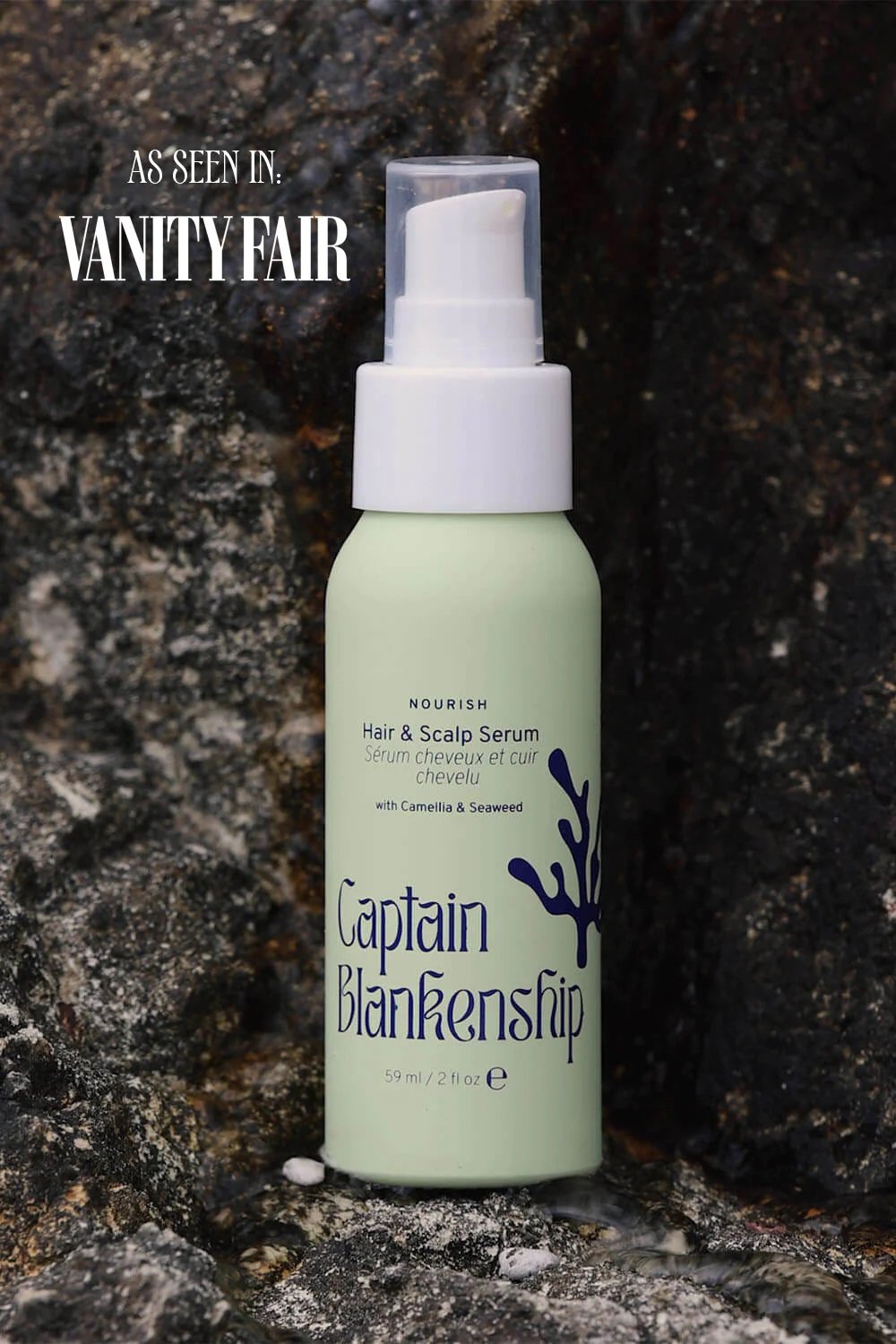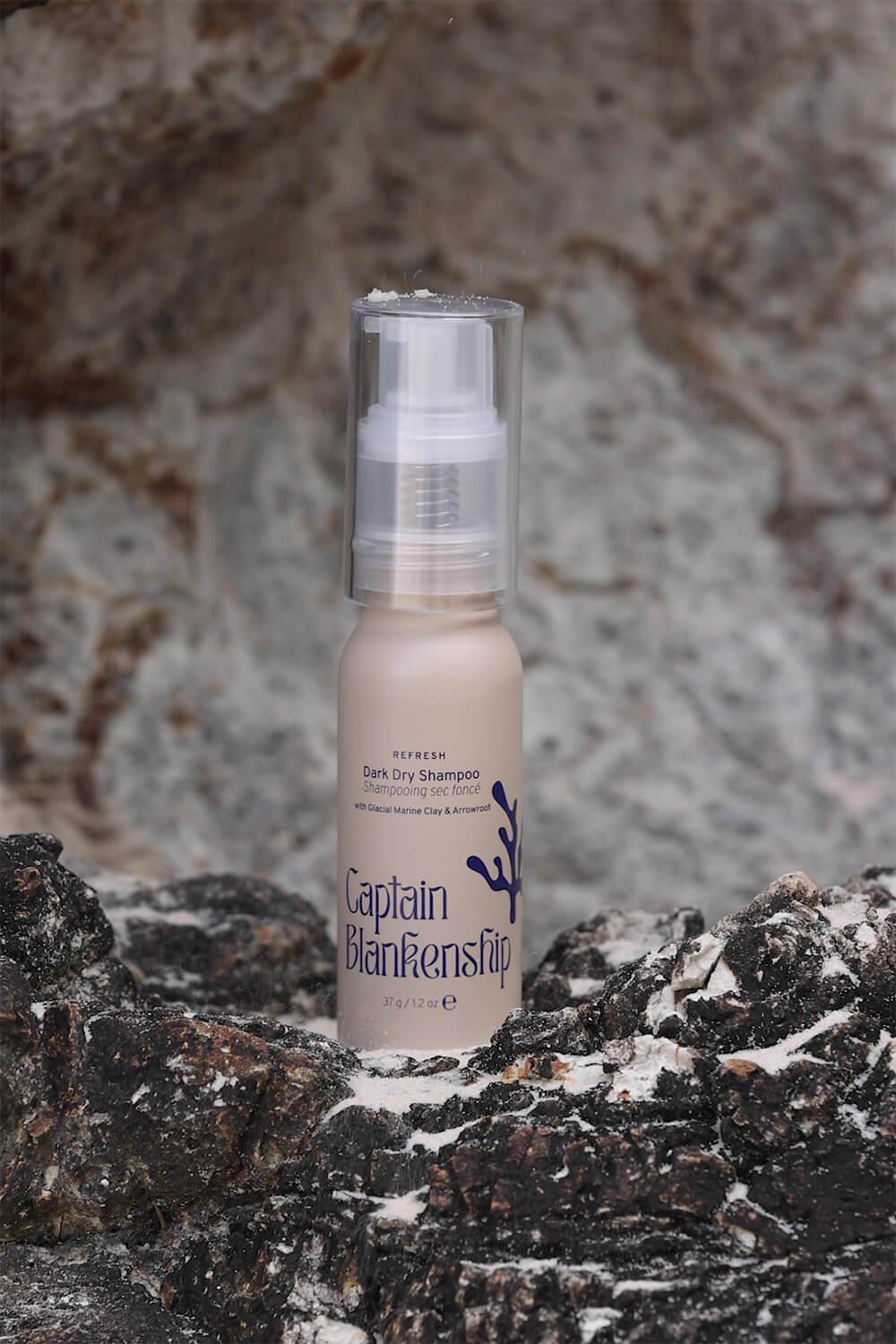Shampoo
*Originally published in 2020, updated April 2023
Switching to natural shampoo will reduce your exposure to toxic and irritating ingredients like fragrance and lilial. The biggest difference you’ll notice when switching to non-toxic shampoo is that they lather less. This is because truly clean shampoo does not contain sulfates, a harsh surfactant that can dry out hair and irritate scalp and eyes.
Why You Should Switch To Non-Toxic Shampoo
Silicones (such a dimethicone, cyclomethicone, amosimethicone) give your hair shine and “slip.” The downside to silicones is that they coat the hair, don’t wash out easily and don’t allow moisture in which can lead to buildup and breakage.
Because they are free of sulfates and silicones, non-toxic shampoos improve the long term health of your hair instead of masking dry or damaged hair to just appear shiny.
Other toxic ingredients commonly found in shampoo include the following:
Fragrance - mix of fragrance and chemicals associated with allergies, dermatitis, respiratory distress and potential effects on the reproductive system. Fragrances have been found to contain unnamed toxic ingredients like phthalates which are associated with developmental and reproductive toxicity, endocrine disruption, and cancer.[1][2][3][4]
Butylphenyl methylpropional - also known as lilial, this synthetic fragrance ingredient is a skin and eye irritant and potentially an endocrine disruptor that has been banned in the EU for reproductive toxicity. It is included on the TEDX List of Potential Endocrine Disruptors. [5]
Methylisothiazolinone – allergenic preservative that is possibly neurotoxic based on lab studies on the brain cells of mammals. It is banned for use in cosmetics by the European Scientific Committee on Consumer Safety (SCCS) and limited to .0015% of rinse off products .[6][7][8]
Benzyl benzoate – associated with allergies and dermatitis, and possibly endocrine disruption. Experimental studies show biological effects favoring malignant transformation on human breast cells for benzyl benzoate.[9]
Benzyl salicylate – associated with allergies and dermatitis, and possibly endocrine disruption. Toxicity tests indicate developmental toxicity on rats.[10]
PEGs (polyethylene glycols) - penetration enhancers that may be contaminated with 1,4-dioxane and ethylene oxide which are associated with reproductive, developmental, and endocrine effects, cancer, and DNA damage.[11]
Finding A Non-Toxic Shampoo That Works
If you’ve tried non-toxic shampoo without success, you know that some non-toxic shampoos can leave your hair dry, tangled, or weighed down. Don’t give up!
My personal favorite non-toxic shampoo is Captain Blankenship. Other great options are Carina Organics, Innersense and Rahua. After trying many non-toxic shampoos, I’ve found a few fantastic options that leave your hair shiny and soft.
Captain Blankenship
Captain Blankenship shampoo smells both citrus and salty and leaves your hair feeling super clean. This is an especially great choice if you’re feeling some build-up on your hair.
Follow up with the conditioner which is like a vanilla milk cream for your hair that brings all the right moisture back in. Save with discount code SWITCHNAT20.
Switch
Kevin Murphy contains fragrance, benzyl benzoate, benzyl salicylate, and PEG.
Kerastase contains sulfate, fragrance and butylphenyl methylpropional.
Living Proof contains PEGs, fragrance, methylisothiazolinone, and butylphenyl methylpropional
Non-Toxic Hair Styling Products
Check out my favorite non-toxic styling products. All are fragrance free and free of other harmful ingredients commonly found in haircare. Click on the products below to purchase.
Captain Blankenship Hair & Scalp Serum
Yarok Detangler (learn more here)
Yarok Hairspray (learn more here)
Captain Blankenship Dark Dry Shampoo
*Product links are commissionable.
References & Resources
[1] https://www.ncbi.nlm.nih.gov/pmc/articles/PMC5093181/
[2] https://oehha.ca.gov/media/downloads/proposition-65//p65list091319.pdf
[3] https://www.ncbi.nlm.nih.gov/pmc/articles/PMC4097177/
[4] https://www.ncbi.nlm.nih.gov/pubmed/14572300
[5]https://ec.europa.eu/health/sites/default/files/scientific_committees/consumer_safety/docs/sccs_o_213.pdf
file:///C:/Users/12257/Downloads/lilial%20in%20GB.pdf@https://endocrinedisruption.org/popup-chemical-details?chemid=1011
https://www.obelis.net/news/sccs-final-opinion-on-the-safety-of-butylphenyl-methylpropional-p-bmhca
[6]https://www.ncbi.nlm.nih.gov/pubmed/16547166#targetText=Methylisothiazolinone%2C%20a%20neurotoxic%20biocide%2C%20disrupts%20the%20association%20of%20SRC%20family,kinase%20in%20developing%20cortical%20neurons.&targetText=Methylisothiazolinone%20(MIT)%20is%20a%20biocide,with%20potential%20as%20a%20neurotoxicant.
[7] https://www.ncbi.nlm.nih.gov/pubmed/23340392
[8] https://cen.acs.org/articles/94/i16/Preservative-leavecosmetics-banned-EU.html
[9] https://www.ncbi.nlm.nih.gov/pmc/articles/PMC3443608/
[10] https://www.ncbi.nlm.nih.gov/pubmed/30359701
[11] https://www.fda.gov/cosmetics/potential-contaminants-cosmetics/14-dioxane-cosmetics-manufacturing-byproduct
[12] https://www.obelis.net/news/sccs-final-opinion-on-the-safety-of-butylphenyl-methylpropional-p-bmhca/












